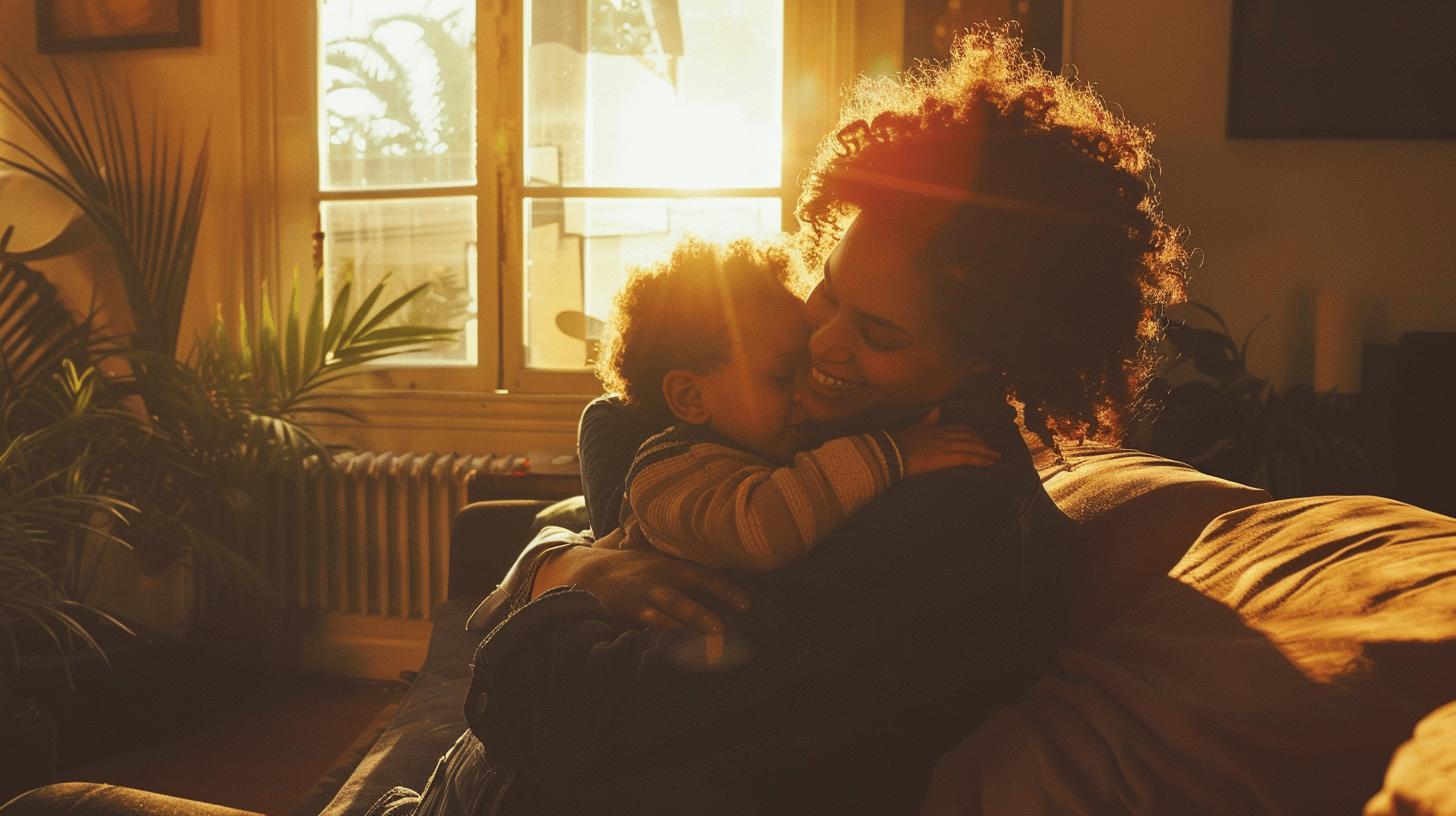Is your parenting driven more by fear than by understanding? Fear-based parenting can have lasting effects on your child's mental health and behavior. By focusing on control and punishment, parents might instill anxiety, low self-esteem, and even rebellious tendencies in their children. Understanding how this approach impacts your child is the first step toward healthier alternatives. In this article, Heads Up Mom explores the psychological and emotional consequences of fear-based parenting, while offering actionable solutions to foster a positive and nurturing environment for your family.
Defining Fear-Based Parenting
Fear-based parenting involves using control and punishment to manipulate children's behavior. This method is driven by the belief that without such measures, children won't learn essential life lessons. Parents who employ this style often resort to threats, harsh discipline, and emotional withdrawal to enforce compliance.
The psychological motivations behind fear-based parenting are rooted in the desire for control and the fear of losing authority over the child. Parents may believe that strict rules and severe consequences are necessary to prevent misbehavior and ensure their child grows up to be responsible. However, this approach can create an environment of fear and anxiety, which may hinder a child’s emotional and psychological development.
- Threatening punishments for minor infractions
- Withdrawing affection when the child disobeys
- Using guilt to control behavior
- Shaming the child in front of others
- Enforcing rigid rules without room for discussion
Fear-based parenting can lead to a cycle of fear and compliance, where children obey out of anxiety rather than understanding. This method may produce short-term results, but it often fails to foster genuine respect or internal motivation. Instead, children may develop trust issues and struggle with self-esteem. Understanding these dynamics is crucial for parents striving to create a healthier, more supportive environment for their children.
Psychological and Emotional Impact of Fear-Based Parenting on Children

Fear-based parenting has significant psychological and emotional repercussions on children. This parenting style, which relies on control and punishment, can create an environment filled with anxiety and stress. The impacts extend far beyond immediate behavior compliance, affecting a child's mental health and emotional well-being.
One of the primary psychological impacts of fear-based parenting is the development of anxiety and low self-esteem. Children raised under constant threat and punishment may begin to internalize feelings of inadequacy. They might feel that their worth is contingent on their ability to meet their parents' strict expectations. This pressure can lead to chronic anxiety, as children become overly cautious and fearful of making mistakes. Additionally, the lack of positive reinforcement and support can erode their self-confidence, making it difficult for them to trust their abilities.
The emotional consequences of fear-based parenting are equally damaging. Children may develop trust issues with their parents and other authority figures. When affection is conditional and used as a tool for control, children learn to associate love with fear and compliance. This association can lead to difficulties in forming healthy relationships later in life. Trust issues may also manifest in a reluctance to seek help or support, further isolating the child emotionally. The emotional scars left by fear-based parenting can be long-lasting, affecting the child's ability to connect with others in meaningful ways.
| Impact | Description |
|---|---|
| Anxiety | Constant fear of punishment leads to chronic anxiety and stress. |
| Low Self-Esteem | Lack of positive reinforcement undermines self-confidence. |
| Trust Issues | Conditional affection creates difficulties in trusting others. |
| Relationship Problems | Emotional scars hinder the formation of healthy relationships. |
Understanding the psychological and emotional impacts of fear-based parenting is crucial for addressing these issues. Recognizing the signs of anxiety, low self-esteem, and trust issues can help parents take steps to create a more nurturing and supportive environment for their children.
Long-Term Consequences of Fear-Based Parenting
Fear-based parenting can have significant long-term consequences on children. This approach, which relies on control and punishment, often leads to higher rates of rebellion, issues with authority, and an increased likelihood of mental health problems. The impacts are not just limited to childhood but can extend well into adolescence and adulthood.
During adolescence, the effects of fear-based parenting can manifest in various behavior problems. Adolescents who grow up in an environment dominated by fear may struggle with authority figures, exhibiting defiant or rebellious behavior. This reaction is often a result of the suppressed emotions and frustrations accumulated over the years. Additionally, the lack of emotional support and validation can lead to difficulties in self-regulation and emotional management. Adolescents may also turn to risky behaviors as a form of escapism or as a way to assert their independence from oppressive parental control.
- Higher rates of rebellion and defiance
- Increased likelihood of mental health problems
- Struggles with self-regulation and emotional management
- Difficulties forming healthy relationships
The long-term outcomes of fear-based parenting underscore the importance of adopting more supportive and nurturing parenting techniques. Children raised in fear-based environments often carry emotional scars that influence their behavior and relationships well into adulthood. Understanding these consequences is crucial for parents looking to break the cycle and foster a healthier, more positive environment for their children.
Alternative Parenting Techniques to Fear-Based Parenting

Positive parenting offers a constructive alternative to fear-based methods. It focuses on nurturing a child's emotional and psychological well-being through compassion, clear expectations, and logical consequences. This approach fosters a supportive environment where children can thrive without the fear of punishment.
Leading with compassion is a cornerstone of positive parenting. By showing love and understanding, parents can build a strong emotional connection with their children. Setting clear expectations is equally important. Instead of using threats, parents can explain rules and the reasons behind them. Logical consequences, rather than punitive measures, teach children about responsibility and the natural outcomes of their actions. For example, if a child doesn’t do their homework, they might miss out on playtime to complete it instead.
Helping children meet expectations involves consistent reminders and validation of their feelings. When a child struggles to follow rules, parents can guide them by reiterating the importance of the rules and showing empathy towards their emotions. Teaching calming strategies is another effective technique. Children can learn to manage their emotions through deep breathing, mindfulness, or taking a break when they feel overwhelmed. Listening to children, even when disagreements arise, encourages open communication and mutual respect.
- Show empathy and validate your child's feelings
- Use logical consequences instead of punishments
- Set clear and understandable expectations
- Teach calming strategies like deep breathing
- Encourage open communication by actively listening
Implementing these positive parenting techniques can lead to numerous benefits. Children are more likely to develop self-regulation skills, emotional intelligence, and a strong sense of trust and respect toward their parents. This approach not only improves behavior but also strengthens the parent-child relationship, creating a more harmonious family dynamic.
How to Heal and Move Away from Fear-Based Parenting
Healing from fear-based parenting starts with acknowledging past mistakes and understanding the need for change. By recognizing the harmful effects of fear-based methods, parents can begin to take steps toward creating a healthier environment for their children. This process requires a conscious effort to adopt new parenting strategies that promote emotional well-being and trust.
Seeking therapy and joining support groups can play a crucial role in this healing journey. Therapy provides a safe space for parents to explore their motivations and fears, helping them understand why they resorted to fear-based tactics. A therapist can offer guidance on how to develop more positive parenting techniques. Support groups, on the other hand, connect parents with others who are experiencing similar challenges. Sharing experiences and solutions within a community can offer encouragement and practical advice, making the transition away from fear-based parenting more manageable.
- Acknowledge past mistakes and commit to change
- Seek therapy to understand and address underlying issues
- Join support groups for shared experiences and encouragement
- Continuously educate yourself on positive parenting techniques
Breaking the cycle of fear-based parenting requires consistent effort and mindfulness. Parents must remain committed to positive change, regularly reflecting on their approaches and making necessary adjustments. This commitment not only benefits the child but also strengthens the parent-child relationship, fostering a supportive and nurturing environment.
Final Words
In the action, this blog post delved into the concept of fear-based parenting, highlighting its definition and psychological motivations. The discussion progressed to cover its psychological and emotional impacts on children, revealing significant mental health concerns. It then examined the long-term consequences, indicating behavioral issues in adolescents and adulthood.
On a positive note, alternative parenting techniques, such as positive and compassionate parenting, offer effective strategies. By adopting these methods and seeking therapy or support, parents can move away from fear-based tactics. Embracing these strategies will foster healthier family dynamics and better child development outcomes.
FAQ
What is fear-based parenting?
Fear-based parenting involves using control and punishment to manipulate children's behavior. It relies on threats and withdrawal of affection to enforce compliance.
What is the opposite of fear-based parenting?
The opposite of fear-based parenting is positive parenting. Positive parenting emphasizes compassion, understanding, and logical consequences instead of fear and punishment.
What is an example of fear-based decision making?
An example of fear-based decision making is choosing to punish a child harshly to prevent future misbehavior, rather than understanding the cause of the behavior and addressing it compassionately.
What is the difference between fear and love parenting?
Fear-based parenting uses control and punishment to dictate behavior, while love-based parenting relies on understanding, compassion, and logical consequences to guide children.
What are some examples of fear-based parenting?
Examples of fear-based parenting include threats of severe punishment, withdrawal of affection, constant criticism, unrealistic expectations, and inconsistent rules.
What are the consequences of fear-based parenting?
The consequences of fear-based parenting include decreased self-confidence, anxiety, trust issues, and difficulty in forming healthy relationships. Long-term effects may include rebellion and mental health problems.
What does fear-based parenting research show?
Research shows that fear-based parenting can lead to increased anxiety, lower self-esteem, and trust issues in children. It often results in long-term mental health problems.
What are signs a child is scared of a parent?
Signs a child is scared of a parent include avoiding eye contact, being overly compliant, displaying anxiety symptoms, and hesitating to express opinions or needs.
What are examples of fear-based discipline?
Examples of fear-based discipline include yelling, severe punishment, shaming, threats, and withdrawal of affection to enforce rules and control behavior.
Is fear-based parenting considered abuse?
Fear-based parenting can cross into abuse if it involves emotional manipulation, severe punishments, or actions that cause psychological harm to the child.
How does fear-based parenting impact mental health?
Fear-based parenting can negatively impact children’s mental health by increasing anxiety, lowering self-esteem, and causing trust issues with authority figures.
What are the long-term effects of fear-based parenting?
Long-term effects include higher rates of rebellion, issues with authority, mental health problems, and difficulties in forming healthy relationships in adulthood.


